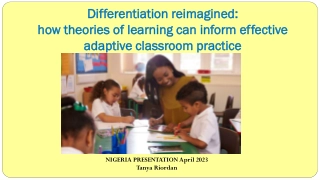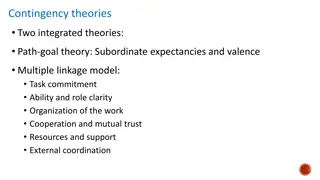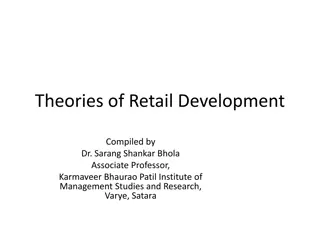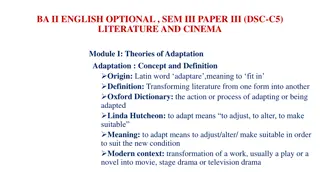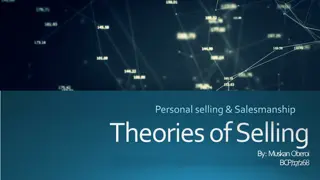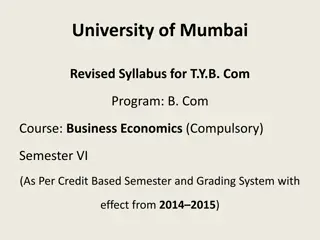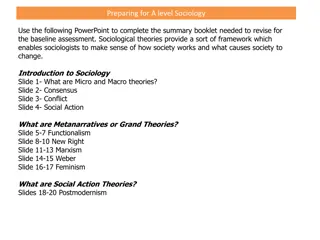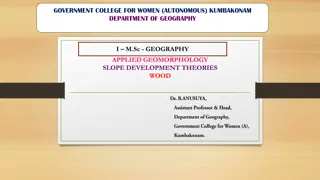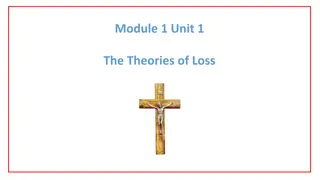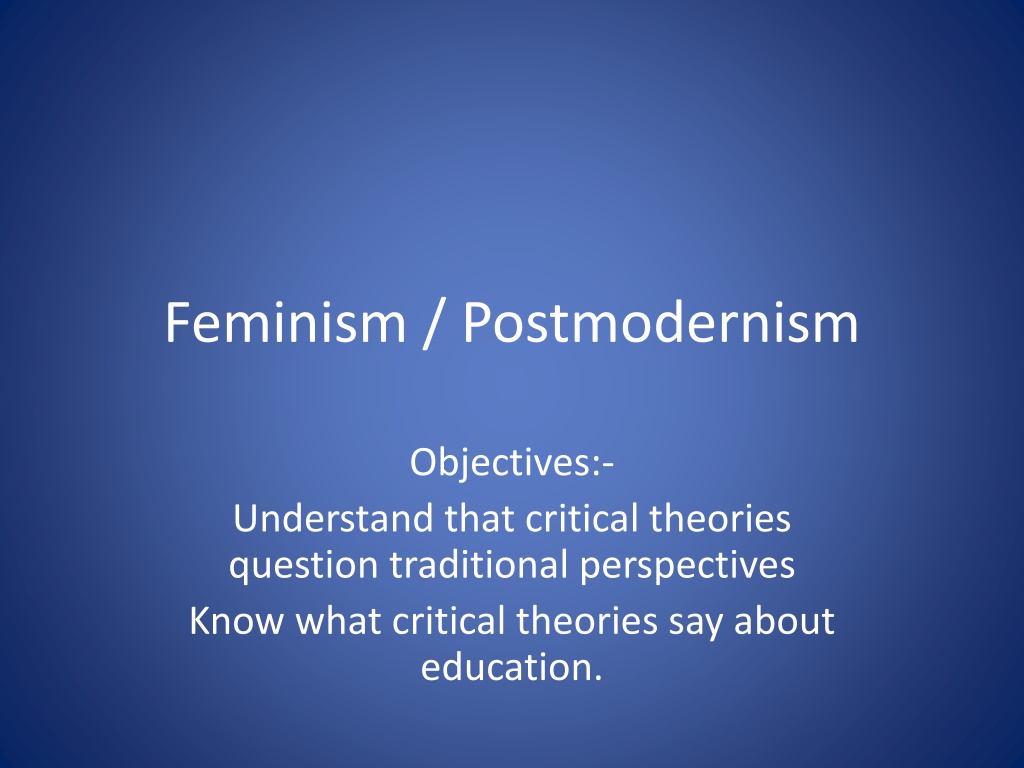
Understanding Critical Theories in Education through Feminist Perspectives
Explore how critical theories like feminism challenge traditional views on education, highlighting how different feminist strands address gender inequalities in society. Learn about liberal feminism, Marxist feminism, radical feminism, black feminism, and Sylvia Walby's triple system theory advocating for a holistic understanding of gender inequality issues.
Download Presentation

Please find below an Image/Link to download the presentation.
The content on the website is provided AS IS for your information and personal use only. It may not be sold, licensed, or shared on other websites without obtaining consent from the author. Download presentation by click this link. If you encounter any issues during the download, it is possible that the publisher has removed the file from their server.
E N D
Presentation Transcript
Feminism / Postmodernism Objectives:- Understand that critical theories question traditional perspectives Know what critical theories say about education.
Critical Theories Functionalists have a view of education that seems optimistic and unrealistic to many sociologists. Marxists view the education system as being a form of mind control. Neither picture is entirely satisfactory. Sociologists have therefore looked at other ways of explaining how education works. These other theories are known as critical theories because they criticize society and attempt to change society itself and to examine how people look at the world. They include Neo-Marxism Post Modernism Feminism
Feminism Feminists argue that education helps to reinforce the patriarchal nature of modern society i.e. the belief that society is male controlled and dominated. Feminism has many different strands:
Feminism Liberal Feminists Liberal feminists argue that legislation and education can help to change gender inequalities in society. Many believe that this gradual process has had a great success rate already males and females have access to equal opportunities in education.
Feminism Marxist Feminists Marxist feminists blame the capitalist system for forcing women into the supporting role of wife/mother at home and in lower positions in the workforce. Education helps to preserve these expectations on both men and women.
Feminism Radical Feminism Radical feminists focus on the violent nature of patriarchy. The school classroom and playground are where this male violence (both physical and emotional) is learned.
Feminism Black Feminism Black feminists argue that black females suffer different problems to white females. Their differential treatment at school by teachers and other students suggest that we should look at the situation of black women separately.
Feminism Walby 1999 Sylvia Walby argues that many of the above approaches should be combined to give a more holistic (complete) picture. She advocates a triple system theory where patriarchy, ethnicity and social class need to be considered to give a full understanding of the issues surrounding gender inequality.
Feminism Post-Feminism Post feminists in line with post modern thinking argue that there is no single meaning to being a woman . Working class women have different experiences from middle class women, gay women have different experiences from straight women, gay working class women have different experiences etc. Consequently no overall theory can explain gender differences.
Post Modernism Postmodernism means literally after the modern era . The modern era was a time of certainty and stretched from the 18th century to the late 20th century. Postmodernists believe that this era was far more predictable than the times we live in today, e.g. jobs were for life and class was a major source of identity. Since around the 1970 s we have been living in times characterised by risk and diversity. Consequently this has had huge implications for education .
Post Modernism Moore and Hickox 1994 argue that such policies as the National Curriculum are doomed to failure because they can t keep up with the increasingly diverse nature of society. The continual testing, target setting and recording of results is seen as an attempt to keep some kind of order.
Post Modernism Criticisms Some argue that no such thing as a post-modern world exists and that issues such as social class are just as important today as ever. Postmodernists criticise sociological theories for being meta-narratives (large all embracing explanations). However, in putting forward their views are not postmodernists falling into the same trap?

